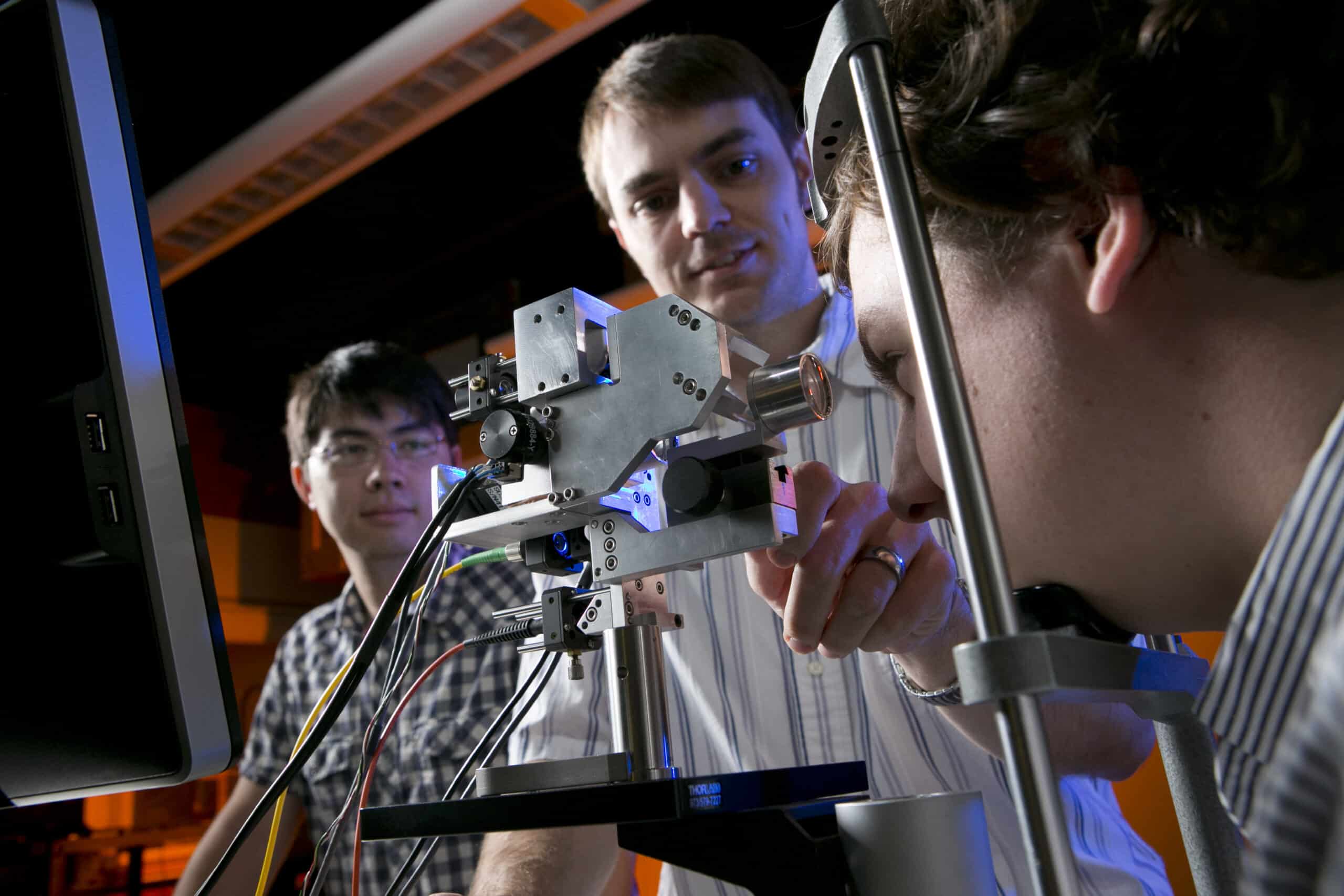PhD Admissions
Esteemed Faculty. Interdisciplinary Research.
When you join the thriving, interdisciplinary research community at Duke BME, you gain access to unique opportunities in translational research.
Come to Duke and Durham, and get a PhD experience like no other.

Excellent Outcomes
Nearly 20 percent of recent graduates launched into academic careers. More than 60 percent began jobs with leading health technology organizations.
A Legacy of Innovation
For more than a half-century, Duke BME been consistently recognized as the leader in high-impact biomedical engineering. Our secret: Uncommonly synergistic collaborations with our peers in Duke’s highly-respected medical research enterprise.
Signature Discoveries
- Real-time 3-D ultrasonic imaging
- Low-cost portable cervical cancer screening
- Lab-grown muscle that heals itself after implantation
- CRISPR to treat Duchenne muscular dystrophy
- The “Pratt Pouch”—A drug-delivery device named by WHO an innovative global health technology

Help With Your Application
Engineering Graduate Ambassadors are Duke students who help applicants navigate the PhD application process. Help includes 1:1 advising and exclusive webinars.

PhD Contacts

Kathy Nightingale, Ph.D.
Director of Graduate Studies, Theo Pilkington Distinguished Professor of BME


